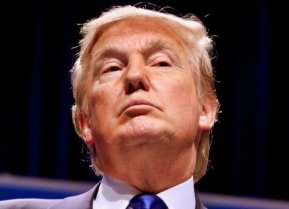Could Donald Trump Dump JD Vance?
It remains unlikely, of course, that Trump would actually dump Vance. It would testify to panic in the campaign and underscore the already existing unease about Trump’s volatility and judgment. But Trump’s feelings about Vance are hardly likely to be soothed by fresh press reports about his repeated denunciations of him in 2016 for engaging in sexual assault.
As a presidential candidate in 2016, Donald Trump said that he would hire “only the best people in the world” to serve in his administration. If only. The truth, of course, is that Trump routinely delivered effusive tributes to his cabinet officials as president, only to turn on them, often within months. He called his former Secretary of State Rex Tillerson “dumb as a rock” and “totally ill prepared and ill equipped to be Secretary of State,” raising the question of why he hired him in the first place. He also branded his national security adviser, John Bolton, “washed up” and a “liar” in June 2020 after his memoir appeared. Turnover on what the Brookings Institution called his “A Team,” which did not include cabinet officials, was over 92 percent during his presidency.
Is JD Vance about to become the latest member of the Trump entourage to suffer defenestration? Reports are now circulating that Trump is having second thoughts about the thirty-nine-year-old Ohio Senator whom Trump tapped to represent the generational change in the GOP. Tim Alberta stated on X that the “Most striking thing I heard from Trump allies yesterday was the second-guessing of JD Vance—a selection, they acknowledged, that was borne of cockiness, meant to run up margins with the base in a blowout rather than persuade swing voters in a nail-biter.”
It’s become increasingly clear that Trump was unprepared for President Joe Biden’s departure from the race, which allowed Vice President Kamala Harris to win the majority of Democratic delegates on Monday. Put otherwise, Trump, who selected Vance at the recommendation of his son, Don Jr., was caught flatfooted.
Vance was supposed to rev up the GOP base for the election, but he will not help with Trump’s appeal to swing voters and suburban moms. Instead, he’s being pilloried for a number of stands, including his support for menstrual tracking by state law enforcement agencies as part of his battle against abortion rights. He has suggested that women in abusive marriages should not leave their husbands: “This is one of the great tricks that the sexual revolution pulled on the American populace. Making it easier for people to shift spouses like they change their underwear.” And, consistent with his admiration for the policies of Hungary’s Prime Minister Viktor Orban, he is a staunch pro-natalist, dismissing women who do not have children as “childless cat ladies.”
Needless to say, none of these sentiments bother Trump in principle. But it’s the prospect of having to go up against Harris at a moment when polls indicate that fewer women will vote for him than in 2020 that may be causing him second thoughts about the Ohioan. As Politico notes, “Women currently comprise 51 percent of the voting-age population in the U.S., and they’ve been making their vote felt since Roe v. Wade was overturned in June 2022.”
It remains unlikely, of course, that Trump would actually dump Vance. It would testify to panic in the campaign and underscore the already existing unease about Trump’s volatility and judgment. But Trump’s feelings about Vance are hardly likely to be soothed by fresh press reports about his repeated denunciations of him in 2016 for engaging in sexual assault.
Still, embarking upon a new quest for a vice president would allow Trump to go on the offensive in shaping the narrative of the race, which he’s currently lost control over. Harris, at least for now, has captured the spotlight that Trump covets. How Trump must miss running against Biden. Now that Harris has entered the race, it has actually become one.
About the Author:
Jacob Heilbrunn is editor of The National Interest and is a nonresident senior fellow at the Atlantic Council’s Eurasia Center. He has written on both foreign and domestic issues for numerous publications, including The New York Times, The Washington Post, The Wall Street Journal, Financial Times, Foreign Affairs, Reuters, Washington Monthly, and The Weekly Standard. He has also written for German publications such as Cicero, Frankfurter Allgemeine Zeitung, and Der Tagesspiegel. In 2008, his book They Knew They Were Right: the Rise of the Neocons was published by Doubleday. It was named one of the one hundred notable books of the year by The New York Times. He is the author of America Last: The Right’s Century-Long Romance with Foreign Dictators.
Image: Consolidated News Photos / Shutterstock.com.


